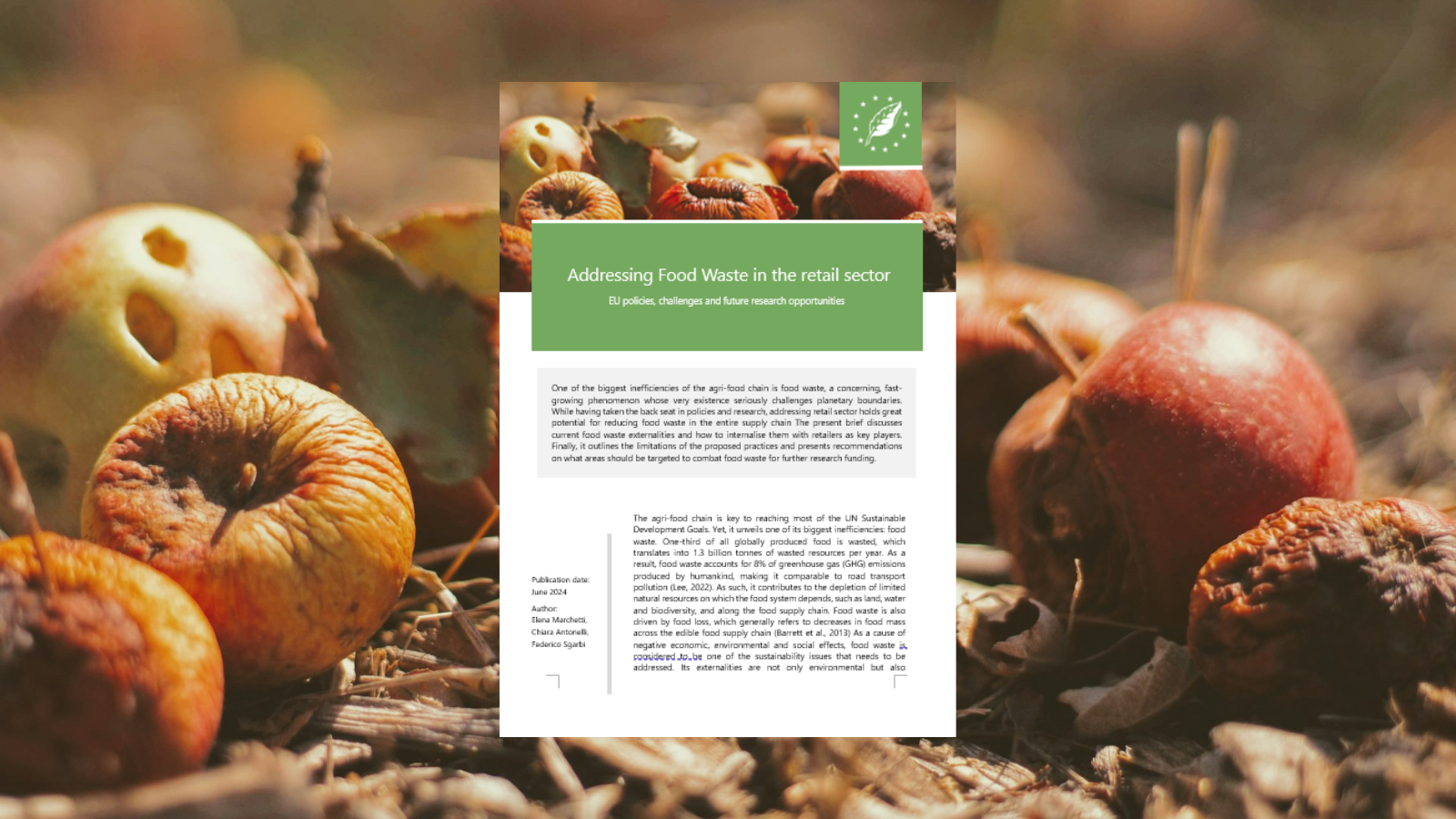AUTHORS: Elena Marchetti, Chiara Antonelli, Federico Sgarbi
One of the biggest inefficiencies of the agri-food chain is food waste, a concerning, fast-growing phenomenon whose very existence seriously challenges planetary boundaries. One-third of all globally produced food is wasted, which translates into 1.3 billion tonnes of wasted resources per year. As a result, food waste accounts for 8% of greenhouse gas (GHG) emissions produced by humankind, making it comparable to road transport pollution. As a cause of negative economic, environmental and social effects, food waste is thus among the sustainability issues that need addressing.
At the dawn of the recently adopted position of the Council on the revision of the Waste Framework Directive 2008/98/EC, the EU needs a strong commitment to halve food waste by 2030. EU actions are not limited to Farm to fork Strategy and other relevant policies (Biodiversity Strategy, Bioeconomy Strategy, Circular Economy Action Plan, and Common Agricultural and Fisheries policies), but also several initiatives related to research programmes aiming at reducing food waste production. These prove to be crucial to address the externalities generated by food waste, which are not only environmental but economic and social as well.
Aside from households, most of the food waste occurs in the retail sector and food services, i.e. out-of-home waste which encompasses bars, supermarkets, events, mass-catering and all sorts of food services. The retail sector, in particular, which generates 13% of global food waste, holds great potential for reducing food waste in the entire supply chain. Retailers play a significant role in food waste mitigation, especially in Western economies. The European food system can be pictured as an hourglass: the upper part represents producers and manufacturers while the lower part represents consumers. The narrow middle part constitutes the retail sector, characterised by a high level of market concentration, that controls the flow of food items from producers to consumers. Therefore, large retailers hold substantial market power, allowing them to foster changes in the food system from upstream to producers and consumers.
To address food waste externalities, particularly at retail and consumption level, market-based measures are critical. However, the implementation of market incentives and retailer practices to mitigate food waste encounters several barriers. This brief identifies primary obstacles to friendly practices, such as:
- lack of data
- technological limits
- illegal dumping
- stakeholders’ resistance
These issues require coordinated efforts across stakeholders, improved data collection, and robust enforcement of policies. In light of the evidence provided, the brief identifies areas within food waste mitigation that require further research and whether they are already addressed in current funding projects. The most relevant identified are exploring new technologies for food preservation, enhancing data analytics for better demand forecasting, and promoting sustainable consumption practices. Additional funding and support for research on these topics are essential to achieve substantial progress in food waste reduction.
Keeping research and innovation on food waste high in the next EU food research agenda with adequate financing in the next Multiannual Financial Framework will be crucial to bring substantial improvement towards sustainable food waste management and enable the, urgently needed switch to circularity of a food sector, in harmony with global, planetary boundaries.
Image by Joshua Hoehne on Unsplash


